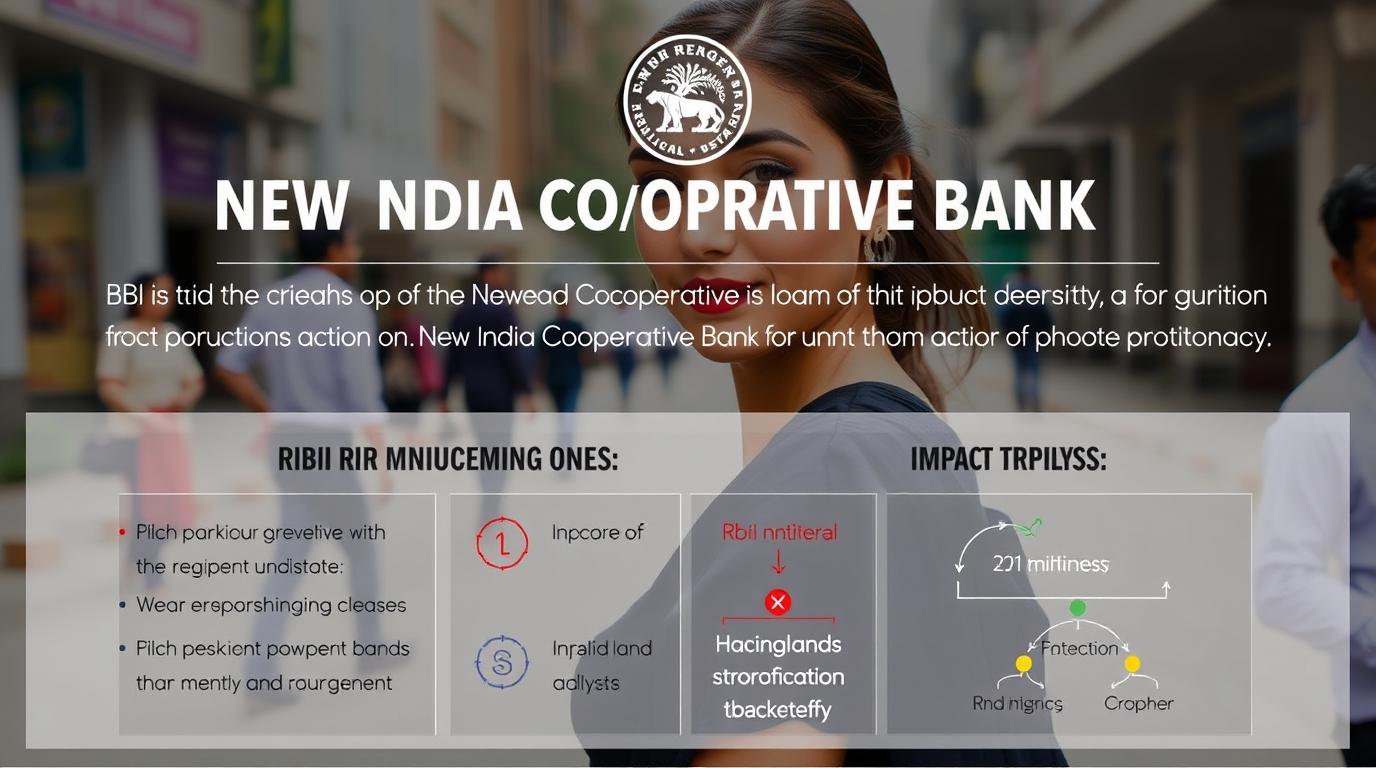New India Co-operative Bank – RBI’s Latest Action and Its Impact Explained
🔹 Understanding the Issue In Detail
The Reserve Bank of India (RBI) recently took stringent action against New India Co-operative Bank owing to alleged financial irregularities. According to reports, there has been a misappropriation of funds by bank staff, leading to significant financial instability within the institution.
Customers and stakeholders have been caught off guard by this development, raising concerns about the bank’s financial health and overall security of their deposits.
📌 Reasons Behind the Issue
The primary reasons for the RBI’s action against New India Co-operative Bank include:
- Alleged Misappropriation of Funds: Reports indicate that some employees engaged in financial misconduct.
- Weak Internal Controls: The bank’s lack of robust internal oversight mechanisms made it vulnerable to fraud.
- Customer Grievances: Growing customer complaints about withdrawal issues raised red flags.
- RBI’s Tightened Banking Norms: The central bank is now more stringent in regulating institutions that pose a risk to financial stability.
⚠️ Repercussions of the Issue
🛑 Impact on Depositors
Customers of the bank are the most affected by the RBI’s action. The major consequences include:
- Restrictions on withdrawals leading to financial strain.
- Increased fear and uncertainty concerning the safety of deposits.
- Possible delay in receiving full amounts if severe financial distress continues.
📉 Impact on Employees
Employees of the New India Co-operative Bank are facing an uncertain future as the regulatory restrictions might lead to layoffs or restructuring.
🔍 Market & Investor Confidence
Banking failures or financial mismanagement create a ripple effect, shaking investor confidence. Some key concerns include:
- Negative sentiment around co-operative banking institutions.
- Potential withdrawal of deposits from other co-operative banks.
- Stronger banking regulations impacting small institutions.
🔊 Opinions of Various Stakeholders
👉 RBI’s Perspective
The RBI has taken this action citing financial irregularities and the need to protect depositors. According to sources, the central bank is monitoring the situation closely and may impose stricter remedies if necessary.
👉 Customers’ Perspective
Many depositors are worried and have voiced their concerns.
- “I had my life savings here. What will happen to my money?” – A worried depositor
- “Regulations should be tighter so that such fraud does not happen.” – Concerned account holder
👉 Experts and Banking Analysts’ Views
Many financial experts feel the co-operative banking sector needs stronger oversight and better financial practices.
📊 Summary of the Situation
| Aspect | Details |
|---|---|
| Issue | Financial mismanagement in New India Co-operative Bank |
| Reason | Alleged misappropriation of funds by bank staff |
| Impact | Customers, employees, and market confidence affected |
| Action by RBI | Restrictions to safeguard depositors and financial stability |
🔴 The Road Ahead
While the RBI’s intervention aims to protect depositor interests, the situation raises important questions about the regulation of cooperative banks in India.
Frequently Asked Questions (FAQs) – RBI Action on New India Co-operative Bank
Customers should verify details with RBI and their respective financial institutions before making decisions. The author takes no responsibility
for any loss incurred due to reliance on this information.



